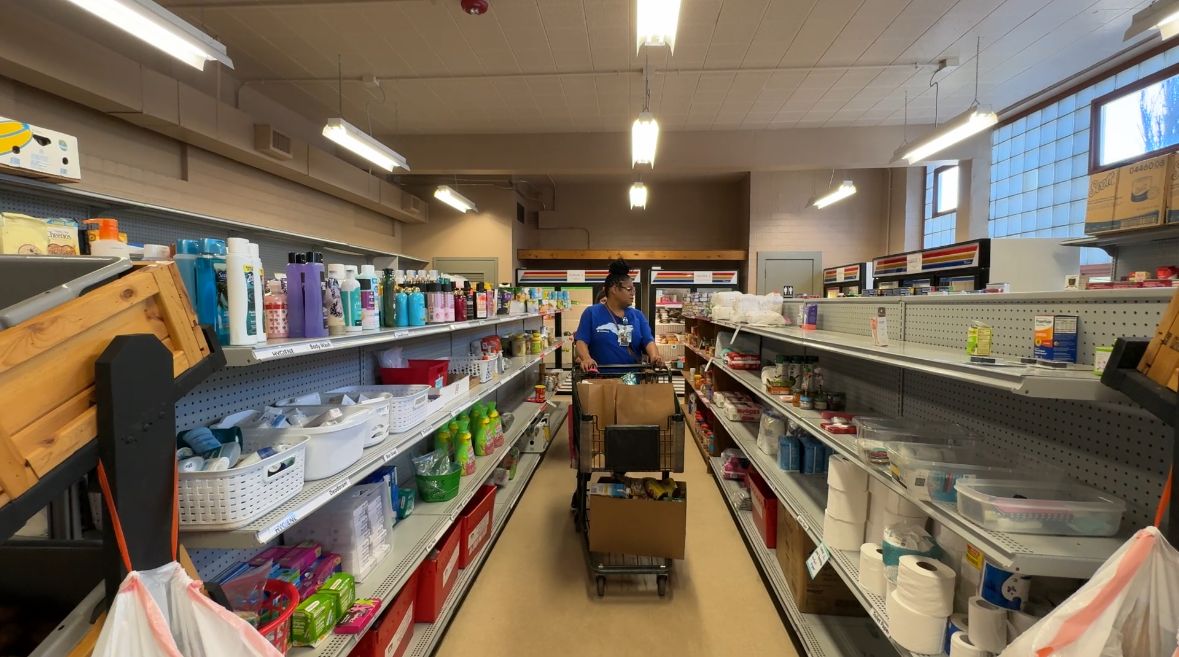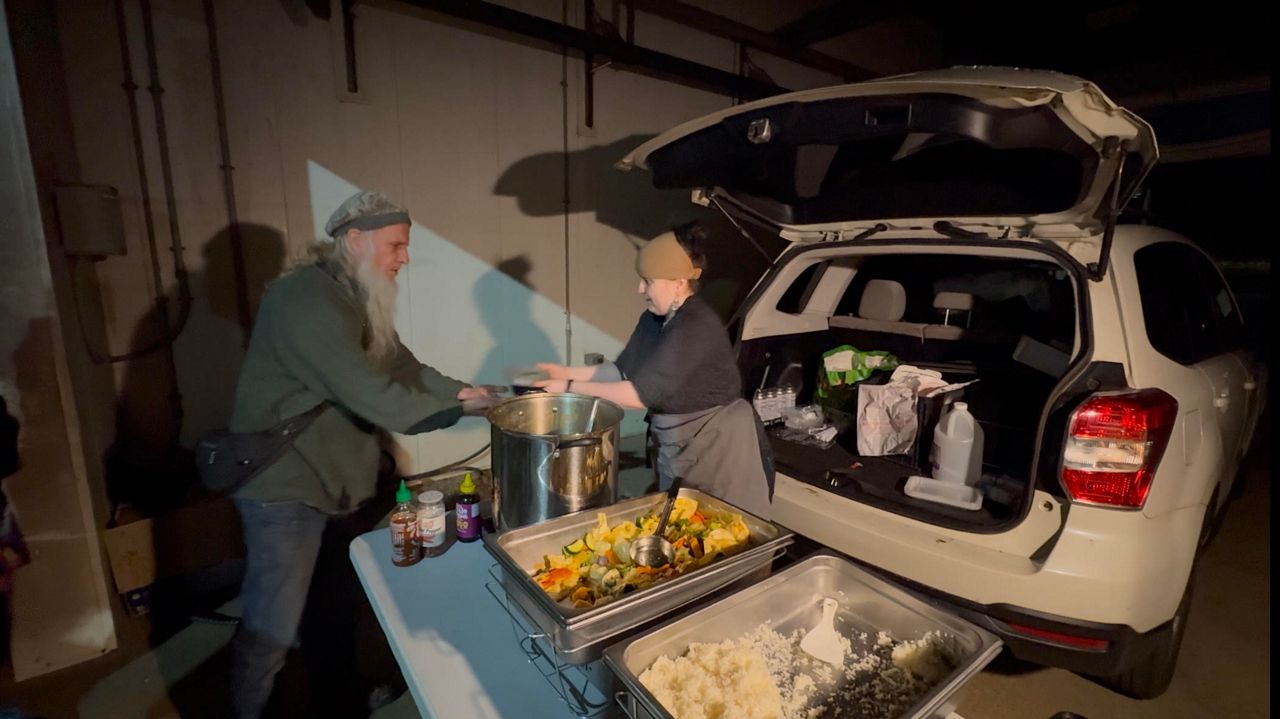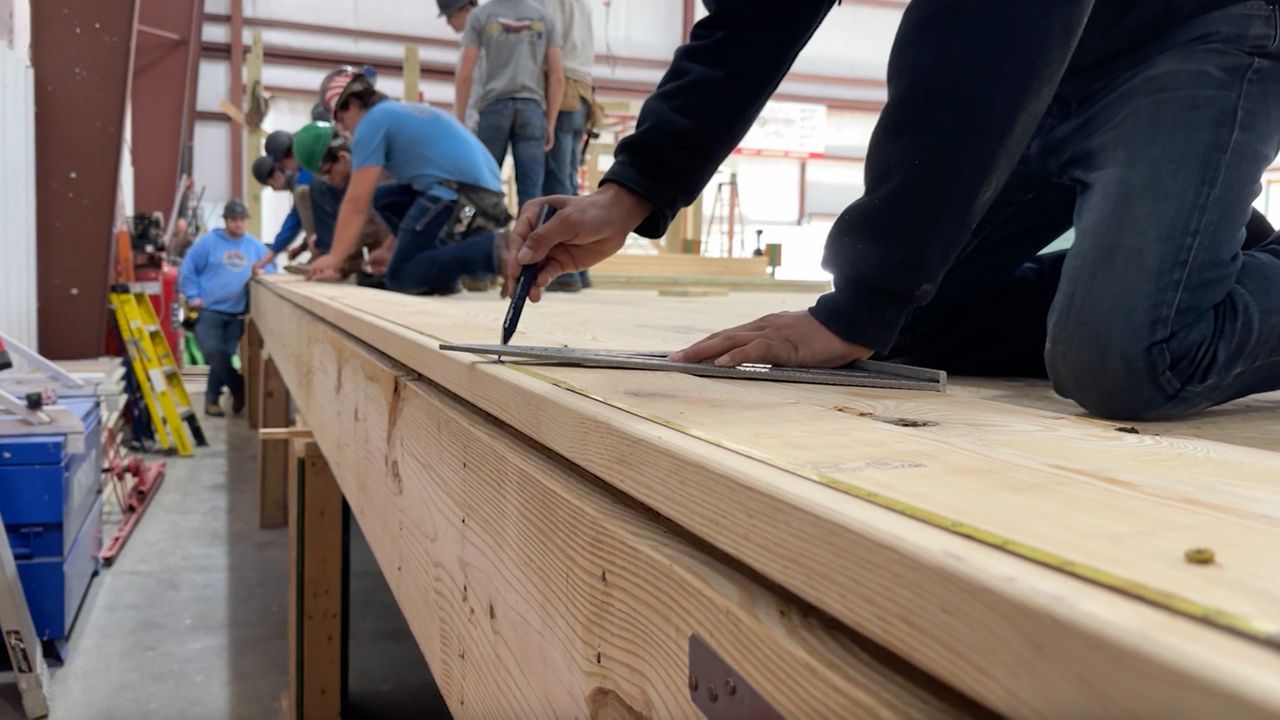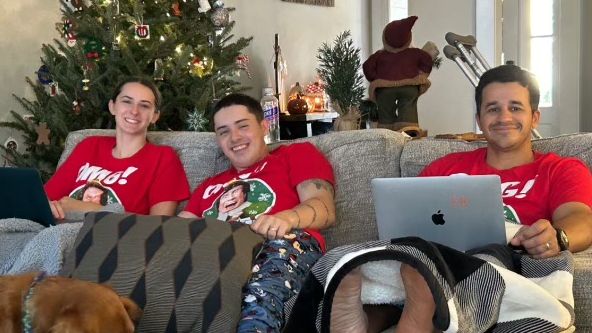DURHAM, N.C. — You can partly credit the creation of many prescription drugs sold in America to a Nobel Prize winning scientist in Durham.
Dr. Robert Lefkowitz’s work benefits modern medicine, and recently fellow researchers, friends, colleagues and family celebrated fifty years of excellence at Duke University.
“I started out as a physician. I didn’t do any research. Then it went more and more into the research,” Lefkowitz said.
When Lefkowitz hung up his stethoscope in the early 1970s for lab work, it was for the benefit of mankind.
Decades ago while working with a cardiology fellow, his co-recipient of the Nobel Prize in Chemistry, Brian Kobilka, the physician-scientist’s discovery of which receptors in the body are targets for drug molecules, made a lasting change.
“The drug, the neurotransmitter, the hormone, is like a key and the receptor site is like a lock. They have to fit together perfectly,” Lefkowitz said.
The researcher’s findings became the pharmaceutical blueprint for developing beta blockers, antihistamines and more.
“When we discovered this in 1986, we immediately realized that many receptors that look like this,” he said.
But you won’t hear any gloating from this Bronx, New York native.
“Because you just don’t think of it like that. Also, I think we all have a bit of impostor syndrome, right? You don’t really take it too seriously,” Lefkowitz said.
A trip down the hall to his office, affectionately named ‘Lefkoville’, revealed proof of how seriously others take his work.
The researcher pointed to a framed award on the wall. “Yep, there’s the Nobel Prize. It turns out that it’s a big honor in Sweden,” he said. The Royal Swedish Academy of Sciences is the institution that awarded Lefkowitz in 2012.
“In the moment that I learned I was getting the prize, I realized to my satisfaction that I would never ever have to answer the question, ‘Bob when are you going to win the Nobel Prize’? That was a real good feeling. I don’t mind telling you that,” “In the moment that I learned I was getting the prize, I realized to my satisfaction that I would never ever have to answer the question, ‘Bob when are you going to win the Nobel Prize’? That was a real good feeling. I don’t mind telling you that,” Lefkowitz said with a laugh.
The 80-year-old scientific merits caught the eye of another champion in his respective field: Coach Mike Krzyzewski.
“Because he had brought the university its first NCAA basketball championship, and I brought the university its very first Nobel Prize,” he said.
Known to the rest of the world as Coack K, Duke’s all-time winning-est coach invited Lefkowitz to be honored at Cameron Indoor Stadium before a game for receiving the prestigious achievement.
“They were chanting something in unison and pointing at me like this. I couldn’t hear it at first but then it came into focus. They were chanting, ‘He’s so smart. He’s so smart’. At that point, I lifted my heads up in the air and that’s when that photograph was taken,” Lefkowitz said as he referenced a photo of him with arms raised at half-court.
Over the last few weeks, Lefkowitz’s life took center court at Duke University.
Former students from across the globe mailed him letters of congratulations and gratitude for half a century of success.
Lefkowitz read one of the letters aloud. “I wanted to send a note for your 80th birthday. Fifty years at Duke. I’m one of the very fortunate people who has benefited over the almost 25 years of mentorship. You made me feel like family and provided a personal trust few mentors take the time to develop,” he said.
The scientist reached into the stack of letters. “Every time I get lost in the dark night, your smile will be a constellation showing me the way forward. He’s carried a little piece of me away,” he said.
Much like the jersey hanging from the ceiling in his office, he is still the No. 1 person so many turn to for mentorship.
He said the greatest life lessons are not found in textbooks but only through experiences — a rule of thumb guiding decades of mentoring his students.
“That provided a completely different type of fulfillment,” he said. “One of them I believe is to have this air of expectancy. In other words, it’s like every day I am waiting for it. Of course, that is what scientific discovery is all about. The idea of seeing things that other people don’t see in the data. I just make myself accessible to them. Hopefully, they take some things away.”
The researcher has met three presidents and said seeing his former students succeed brings him some of his greatest joys in life.
“I can’t tell you how many times over the years in my career a former trainee will say to me, ‘ya know, I was facing a difficult circumstance’. Could be personal or could be professional. Whenever that happens I say to myself, ‘What would Bob do?’ I find that very fulfilling. What would Bob do?”










